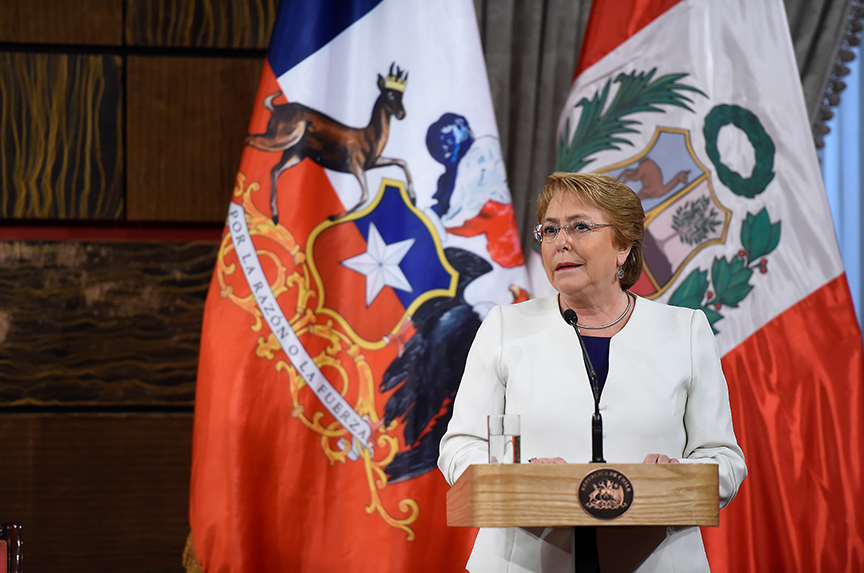When former US secretary of state and then-presidential candidate Hillary Rodham Clinton visited the Atlantic Council in November 2015, she spoke of Latin America’s strides to achieve gender equity at the highest levels. “It may be predictable for me to say this, but there’s a lot we can learn from Latin America’s success at electing women presidents,” she said with a smile. The remark elicited chuckles from the audience, comprised primarily of many accomplished women, but it pointed to a key dynamic in Latin American politics. The region, with a history of female heads of government, seems to be leading the Western Hemisphere in terms of notable women in top-level leadership roles. But in what ways does the example set by Latin America contribute to women rising in all sectors of leadership?
This question led to the launch of the Adrienne Arsht Latin America Center’s Women in Leadership Initiative. The initiative seeks to leverage the region’s compelling case studies and integrate them into a larger dialogue on how governments, corporations, and civil society can maximize recent progress in one region to bring more women into positions of power around the world. Aiming to fill the void of analysis of women’s leadership in Latin America, the initiative combines quantitative and qualitative analysis to address the successes and the pitfalls for women moving forward. Convening key stakeholders in government and business equips the public and private sectors with concrete tools that can guide the implementation of policies that will empower female leadership ascension across the Americas.
Civic participation is one of the clearest indicators of gender parity in any country, and Latin America has more than a few notable examples of women rising to the highest levels of civic leadership. In addition to the familiar names like Bachelet, Fernández de Kirchner, Chinchilla, and Rousseff, the region has made important strides in gender parity in parliaments, ministerial positions and local posts. Quota laws in the region have stimulated an important increase of women’s participation in national leadership—42 percent of Mexico’s congress is now female, Chile has eight female ministers out of twenty-four, and—importantly—polling by Gallup shows Latin Americans very willing to elect women.
Aside from female success in government, the rise of women in the labor force has helped fuel middle-class growth in Latin America and the Caribbean. However, the region has very few female chief executive officers, and most of its largest companies have all-male boards of directors. Although women occupy a growing percentage of managerial positions in Latin America and the Caribbean, they are noticeably absent from senior management. What are the factors in the workplace that inhibit women from rising to the top? What have been the ingredients for the few, but significant, success stories?
Governments, corporations, and multilateral institutions must do more to increase the success of women seeking leadership positions at the highest levels. The Women in Leadership Initiative’s upcoming report, written by former Chilean Minister of State Laura Albornoz, will delve into the data, scant as they are, and explore important questions: are quota laws a sustainable tool to yield a greater proportion of women in legislatures; what are the lessons that can be learned from women who have made it to the upper echelons of both corporate and public life?
Latin America and the Caribbean have made major strides for women’s advancement during the last two decades, but women in the region still face significant hurdles to inclusion and prosperity. Leadership is an arena where we can observe not only women’s modest yet visible progress, but also the clear need for mechanisms to sustain and expand female representation. There are clear examples of impactful female leadership in the region, but the question remains as to what degree these success stories are part of a growing trend.
Capricia Penavic Marshall is an ambassador-in-residence with the Adrienne Arsht Latin America Center at the Atlantic Council.

The Adrienne Arsht Latin America Center broadens understanding of regional transformations and delivers constructive, results-oriented solutions to inform how the public and private sectors can advance hemispheric prosperity.
Image: Michelle Bachelet, Chile’s first female president, has served in office from 2006 to 2010 and from 2014 to the present. (Reuters/Sebastian Rodriguez)
